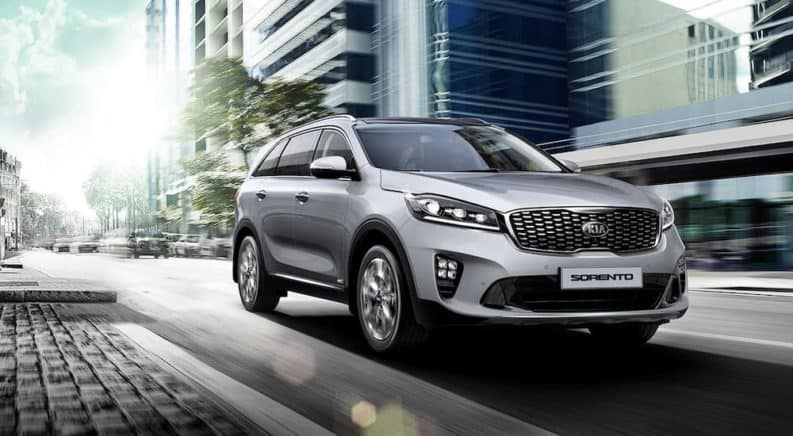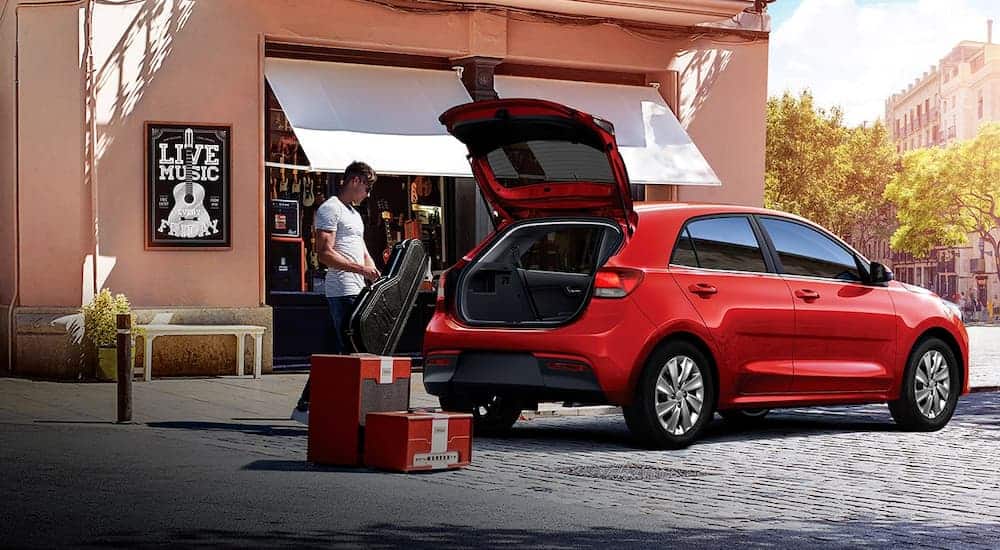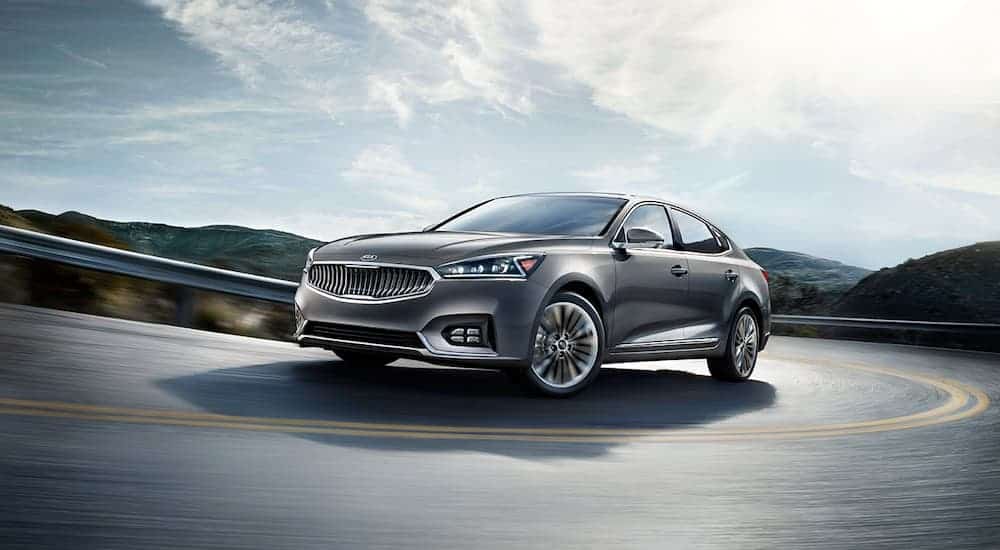For some people, buying a new or used car that they pay towards for several years and own at the end is not the best way to go. Whether it’s because you like driving a new vehicle every few years, have a business that will lease a vehicle for you, or any other reason, leasing a Kia can sometimes be a better option than buying. Shopping for the best Kia lease deals is not always easy, however, nor is making sure you get the best deal possible.
Leasing a Kia is very different from buying one, with a lot of unique terms and issues that you need to make sure you are aware of and consider before you sign on that oh-so-important line. Fortunately, making sure you take care of your interests and find the best Kia lease deals aren’t as hard as it might sound – you just have to ask the right questions. While this might not be totally comprehensive, if you ask about the following things before signing a Kia lease, you’ll know you have a lot of your bases covered.
Thing #1 – Kia Lease Deals or Specials
First things first: always ask about any Kia lease deals or specials that might be going on. A salesperson will usually tell you about them without you asking, but it never hurts to ask and see if it jogs their memory about a deal they might have otherwise forgotten. These kinds of deals change often, so if you are shopping near the beginning of the month or around a holiday, there might be a special they didn’t even know about until you asked and they checked the latest information.
Thing #2 – The Kia’s Capitalized Cost
Now that you’re looking at actual Kia lease deals, be sure to ask about the “capitalized cost” or “cap cost.” This is the value of the Kia right now – in other words, what you would pay if you wanted to buy it. This is important for a number of reasons that you will see below. It’s likely that the salesperson will tell you this or it could be plainly marked on any deal or special you see, but be sure you know what it is.
Thing #3 – Possible Cap Cost Reductions
Cap cost reductions are ways in which the capitalized cost can be lowered prior to signing any Kia lease deals you’re interested in. Reducing the cap cost will save you money in the long run because of how leases work – we’ll get to that in a moment. Just like when buying a new car, you might be able to haggle or negotiate the cap cost down while working out a lease agreement with a dealership. There could also be other specials or incentives going on that can be applied to your lease to bring down the cap cost.
Thing #4 – The Kia’s Residual Value
The “residual value” of a Kia you are interested in leasing is what they estimate the vehicle will be worth at the end of your lease agreement. This is important because the difference between the residual value and the cap cost is what you actually pay during the term of your lease. With a lease, you don’t pay for a car – you pay the depreciation on it while you drive it. So lowering the cap cost and increasing the residual value are ways you can reduce what you pay overall.
Thing #5 – The Money Factor
As you look at different Kia lease deals, be sure to ask about the money factor involved in any particular lease. This directly determines how much interest you will pay on the lease over the length of the term, but it is not expressed as a percent (don’t ask me why). Instead, it will be a long decimal – simply multiply it by 2,400, and you will find the actual interest rate as a percentage.
For example, if a Kia lease deal indicates the money factor is 0.0025 – then when you multiply that by 2,400 you end up with 6, which means the lease has a 6% interest rate. The higher the money factor, the more interest you will pay over the course of the lease.
Thing #6 – The Lease Term
This is quite simple but you want to make sure you ask about it so you know the exact length of the lease. Most Kia lease deals will have a term of either two or three years – anything beyond that is pretty uncommon. At the end of the lease term indicated, you return the Kia and you can lease something else or you may have a buyout option if you decide you want to keep it.
Thing #7 – Amount Due at Signing
Also referred to as a “down payment,” the amount due at signing is what you have to pay when you agree to a Kia lease deal. Most experts suggest you should not pay more than $2,000 at the time of signing, as anything beyond that can be a major loss if you end up in a severe collision or the vehicle is stolen. The insurance company pays out damages to the owner of the vehicle – with a lease, that is the dealership, not you. Don’t go too much under $2,000 if you can avoid it, or you will end up paying more each month.
Thing #8 – Acquisition and Disposition Fees
Acquisition fees are other fees or charges that you have to pay up-front when you agree to a Kia lease deal, while disposition fees are due at the end of the lease. Not all lease agreements will have these, so you definitely want to ask about them. There’s nothing worse than making your last lease payment, then going to return the vehicle only to discover that you still owe a final fee at the end. It’s always better to make sure you know about these things before you sign.
Thing #9 – The Mileage Cap
You should always ask about mileage caps of any Kia lease deals you are interested in. The cap indicates the maximum number of miles you are allowed to put on the vehicle during the terms of the lease, sometimes with specific yearly limits. You need to ask about the mileage cap and be realistic with yourself about how far you drive.
A lease will indicate what kind of fee you have to pay if you go beyond the cap, usually in a set amount per extra mile. Make sure you choose a lease with mileage that works for your needs and pay attention to how much you drive. A few hundred miles over the cap can result in pretty big fees, so take care and ask about the cap and fees for going over.
Thing #10 – Gap Insurance
This is a specific issue unique to leases and one that is very important. Gap insurance protects you if something catastrophic happens to the vehicle. Let’s say you have a lease on a car and you get into a collision where it is totaled. The insurance company will determine the fair value of the car and pay that out to the dealership, not to you. If this payment falls short of covering the residual value of the vehicle, then you end up owing the difference.
If you have gap insurance, however, and this situation occurs, then you are covered, and you don’t have to make up the difference. This can save you thousands of dollars so make sure you ask about gap insurance before signing. It may be provided in some Kia lease deals, or you might have to pay extra for it, but it’s worth it to cover your interests.






